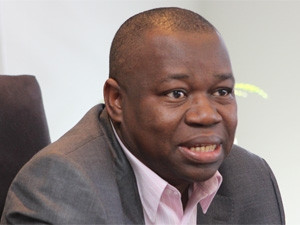
One of the primary differences between the SA National Roads Agency (Sanral) and its "self-appointed critics in civil society" is the roads agency's respect for democratic processes and institutions created by the Constitution.
This is according to Sanral spokesperson Vusi Mona, and comes in response to a call for an independent investigation into e-tolls by the Opposition to Urban Tolling Alliance (Outa) last week.
Outa has questioned Sanral's publicised e-tag sales figures and called for an investigation into e-tolls, specifically the percentage of movements under gantries to date, by day and by month. Outa chairman Wayne Duvenage says the alliance does not believe the state-owned agency's auditors garner this information.
"Yes, [Sanral] may have sold/despatched a million e-tags, but many may be on government cars sitting in Mpumalanga, Limpopo, etc, or may be lying on shelves in shops."
According to Sanral, the total number of e-tags taken up to date is approximately 1.2 million, with over 500 000 individual vehicles registered since e-tolling commenced on 3 December, and between 30 000 and 45 000 registrations taking place on a weekly basis. Over 100 000 users so far registered an e-toll account via the e-toll Web site, the agency told Parliament's portfolio committee on transport last week.
In the latest anti-toll backlash - in what has been an ongoing war of words between Outa and Sanral - the former says Sanral's number of 1.2 million e-tags taken up is "hogwash" and "intended to create the false impression that society is clamouring to become tagged".
Sanral has repeatedly responded to similar claims, saying everything Sanral does is subject to audit processes by the auditor-general. "We have no reason to 'fabricate' figures that could later be disputed by the auditor-general."
Under interrogation
Mona says, as a state-owned agency, Sanral's affairs are "an open book".
He notes the agency publishes an annual report, appears regularly before parliamentary committees - "where [Sanral] is often heavily interrogated" - and all aspects of Sanral's business are scrutinised by the auditor-general.
"In short, the auditor-general investigates the business and financial statements of all government departments and state institutions - including Sanral. The public protector has the power to investigate allegations of impropriety levelled against any department or state entity - with the exception of court decisions."
Mona points out that the said institutions are held in high esteem. "For example, the South African auditor-general, in 2010, received the highest award from the global body, the International Organisation of Supreme Audit Institutions, for its high standards and contributions in the field of public sector auditing."
Mona says it is this independent and globally acclaimed institution whose ability to audit and verify Sanral's published figures is not trusted by Outa.
"The process is quite clear. The auditor-general will audit Sanral's entire business - including our published figures - during its normal, annual investigation. And if Sanral was wrong, the auditor-general would make it public knowledge," he concludes.
Legal fee fight
Meanwhile, the Freedom Front Plus (FF+) yesterday vowed to approach the public protector with regard to what it calls "exorbitant accounts" of lawyers for the Department of Finance.
This, on the back of a parliamentary reply from finance minister Pravin Gordhan revealing that, to date, court cases concerning government's controversial Gauteng e-toll system have cost over R6 million in legal fees.
According to Gordhan, the total amount spent on Outa's court case is R5 786 643.87, while legal action brought by the Tollgate Action Group - an anti-toll group comprising the FF+, the Transvaal Agricultural Union of South Africa and the National Taxpayers' Union - has cost the finance department R229 568.
FF+ spokesperson Anton Alberts says the party will approach the public protector to investigate the amounts the department has paid to lawyers in each of the different court cases.
"The exorbitant account of lawyers in the court cases is a waste of taxpayers' money. The question could justifiably be asked why the state makes use of such expensive legal representatives when there are so many other advocates who charge cheaper rates and are as good as those whose services the state made use of."
Last month, Outa approached the public protector to launch an investigation into complaints around SMS and e-mail notifications sent by Sanral to motorists stating they owe money for e-tolls and will be "handed over". Many motorists say amounts are inflated or incorrect.
Share